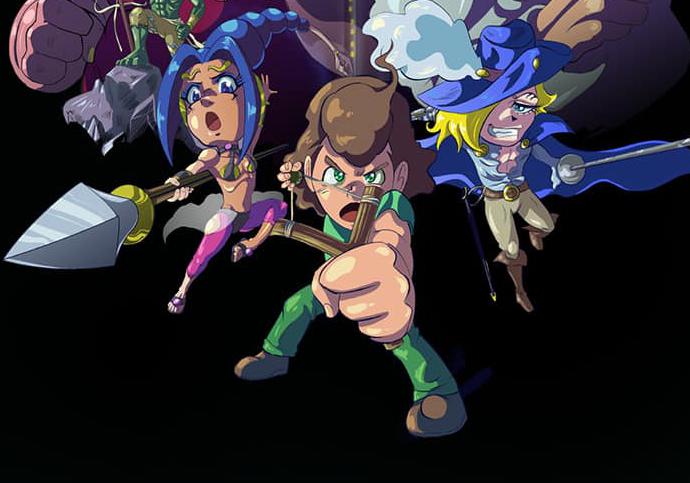Not all games are born to revolutionize some genre, not least those that have become late epigons of the past and a grand style. There are works that are partly outdated, partly simply evolved and hybridized, whose sole purpose is to evoke the atmospheres and mechanics of the past. There Review by Timothy and the Tower of Mu We will try to emphasize that the game is a clear representative of this philosophy.
This is the second episode in Timothy’s series. Kibu Interactive, an independent studio between Italy and Japan. Unlike the previous episode published by Gamera Interactive, this second episode is published by Playism and changes genre and artistic choices. If the reference of the past is the Game Boy generation, here we move to the connotations of NES video games, return to the 2D action-platform genre and always maintain a particularly high difficulty ratio.
The idea of developing this type of game presents a fundamental challenge: to keep the feel of the game true to the original inspiration, to clean all the edges of the past and to take advantage of all the technical elements of the current generation. hardware can be provided. It is precisely in this aspect that Timothy and the Tower of Mu’s greatest strengths and weaknesses lie, a game that reveals a lot of potential but doesn’t always make it to the fullest.
the beginning of the adventure
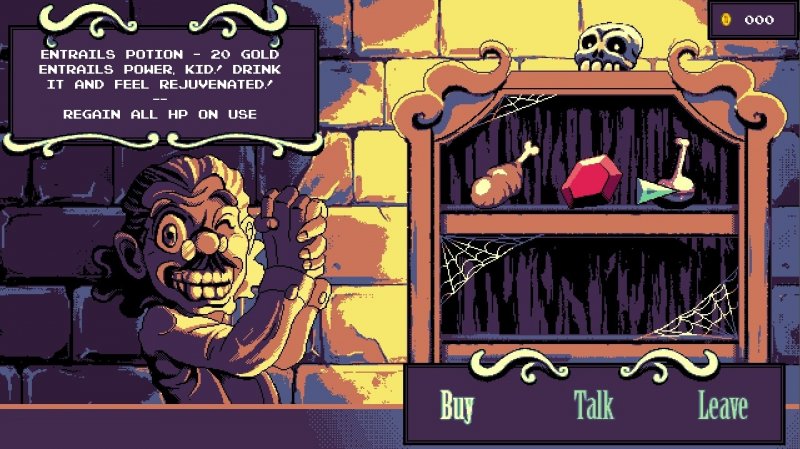
Timothy and the Mu ha Tower simple and creative narrative buildings, evolving from the earlier Timothy and the Mysterious Forest. The hero, who managed to heal his grandfather with the miraculous mushroom found in the mysterious forest, discovers that the mushroom was cursed by the god who created it. You are relieved of any ailments, but after a year death is a final verdict.
Thus dies Timothy’s grandfather, but in the meantime he remembers that the hero is a tower wrapped in a legend: “Whoever climbs on top of it will be able to make a wish”. Keeping this sentence in mind, Timothy sets out to save his grandfather, begins the journey and the game. Beyond this important premise, the narrative development of events is limited, even as the supporting characters and game events spoil and color Timothy’s journey. fast pacewhile developing a rich and diverse gaming knowledge.
A look at the game
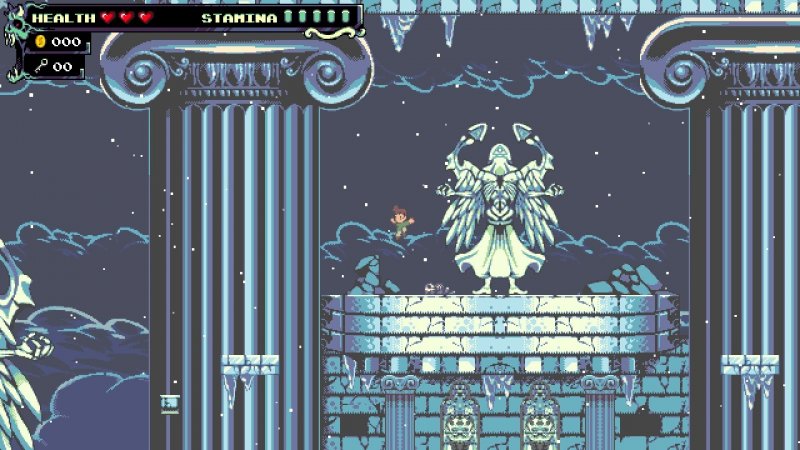
On the style of play Action platformer from the NES era. There are three basic buttons for jumping, sprinting (even in the air), and throwing stones with a slingshot. The challenge lies in using them with the right timing to complete the game pictures. Each picture represents a mini-level, has a rescue station and develops the obstacle course that the player has to overcome.
Each enemy hit reduces the heart rate, while environmental threats such as circular blades and dangerous spikes in the ground result in Timothy’s instant death. This limits the effectiveness of treatments, especially difficulty given by the platform stages. All enemies come back to life when they leave the player’s frame, making it sometimes even difficult to deal with previously passed chapters. To all this is added the mechanics of stamina and oxygen depleted by clinging and submerging, respectively. Together, they add an additional degree of difficulty to the already non-trivial platforming, for a challenge rate that doesn’t define hardcore, even artificially with sometimes difficult peaks.
Complex management of difficulty
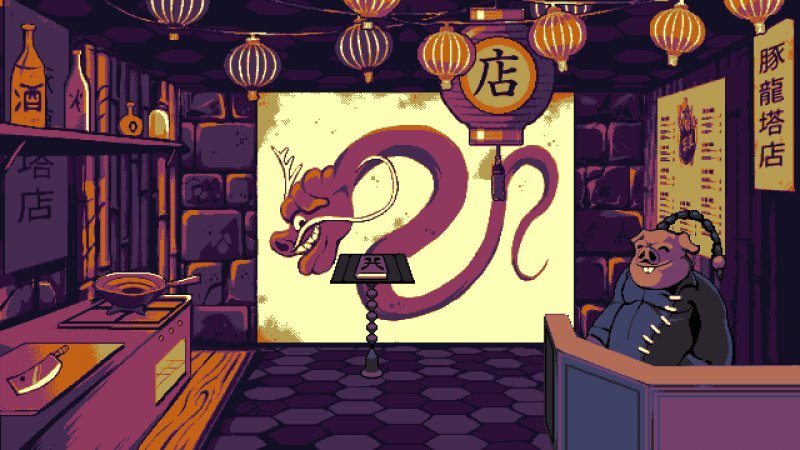
The state of the difficulty unfortunately controls not always responding and for the option to prevent certain actions while performing others. For example, Timothy can use the slingshot while jumping, but cannot run. On the other hand, it can be triggered at any time. This makes maneuvering in tight spaces much more angular as you run and face enemies against bosses in some stages. If you’re not right in the middle of a doorway, it may not let you enter an input command, and some animations, repetitive micro-jumps, and other minor omissions on descending platforms will make you believe you’re doing it. It’s hard to gain complete control of Timothy, even after hours of gameplay.
There is a game design that is strongly linked to experience to deal with this situation. Once you understand the mechanics it’s always easier to find a way to solve it. This is both a logical experience and being able to continue to develop appropriate muscle memory. Inside boss fightThe choice of design punishes the gaming experience for the unidimensionality and lack of variety for which they are justified; satisfaction is minimal and a handful of attempts are all it takes to overcome it. Paradoxically, it’s much easier to get stuck in an expedition than it is to deal with bosses.
despite the difficulty ten hours Announced by the developers for the completion of the adventure by a “senior” player seems plentiful, we believe it’s really hard to go over twenty. But given their €9.99 price, they seem balanced with the offer.
nice artistic work
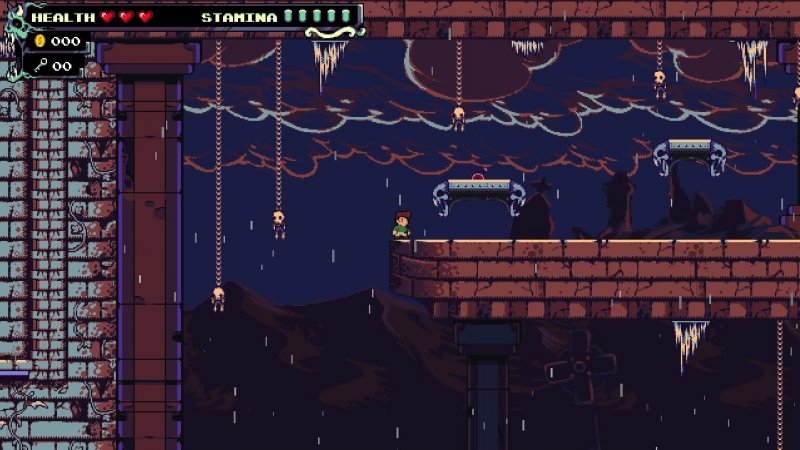
Where Timothy and the Tower of Mu’s epigone philosophy emerged and managed to hit the target directly, artistic facade. The images on the screen manage to bring the player directly back to the time they were determined to remember. The ascent to the Tower is visually homogeneous, but extremely well characterized by the five sub-environments that define it.
Each zone has enemies, has its own decorations and thematic palettes and always manages to convince the player. even taste pixel art it’s cool, but the retro works very well and somehow manages to pack Timothy and the Tower of Mu. Likewise, the selection of songs is remarkable, it’s a pity that there are big problems playing the tracks and often the songs don’t start or are played incorrectly with serious disturbances during the game. The same is true for sound effects, which lack similar care in production.
professional
- Great artistic inspiration
- Abundant gaming experience
- Artificial difficulty with unexpected spikes
- Insipid boss fights
- Audio problems
Source: Multiplayer

